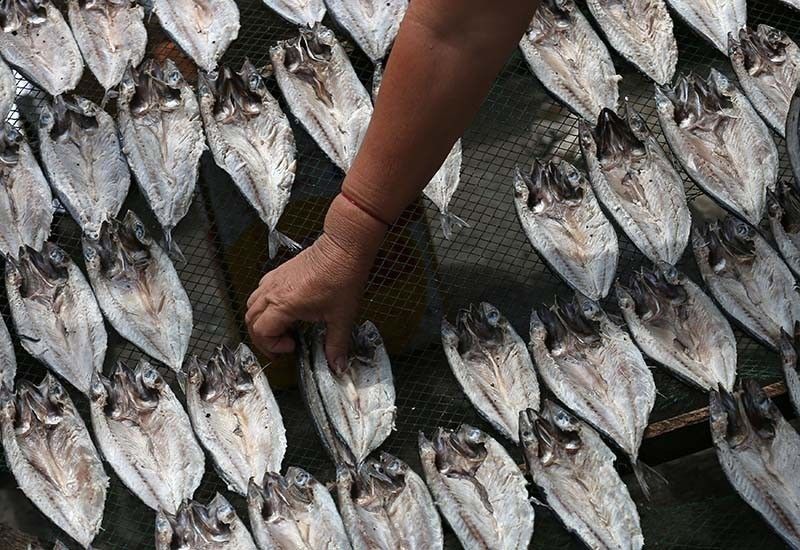Former Health secretary urges DOH to rethink salt tax

MANILA, Philippines — Rep. Janette Garin (Iloilo ), a former Health secretary, called on the department she used to head to rethink its proposed salt tax because of the unique role it plays in the Filipino diet.
She was referring to the proposal of Health Secretary Francisco Duque to impose a “sin tax” on salted products including dried fish, a staple for many Filipinos.
“Salt, used moderately, aids our digestion and excretion. The unique identification of any Filipino household is marked [having] salt in our kitchen and eating tuyo, daing and bagoong to name a few,” said Garin, a former Health Secretary herself.
“We have to understand that many Filipinos do not have refrigerators in their houses, so essentially, they will buy salted fish to preserve it for the next few days."
Lawmakers: Proposal is regressive, anti-poor
Lawmakers in both the Senate and the House of Representatives have since panned the tax as both "regressive" and "anti-poor."
“It is not the sin of the poor that they can only afford a poor people’s diet. It is their concrete present abject condition in our country that prevent them from getting healthy food,” said Rep. Carlos Zarate (Bayan Muna).
A statement released by the DOH on Tuesday identified that the average daily salt intake in the country was more than double the prescribed recommendation by the World Health Organization.
Garin said that it was time to revisit Republic Act 8172, or the Act for Salt Iodization Nationwide (ASIN) Law, if there was indeed a pressing need to address the consumption of salt in the country as a health issue.
The ASIN Law requires salt manufacturers to iodize the salts they produce and distribute, among other stipulations.
"After more than 20 years [since] its passage, a probe is necessary to discuss solutions that are relevant not just to health, but also in the preservation of culture and means of livelihood for those families who depend on the local salt industry,” Garin said.
'Dried fish not a food of leisure'
Former Anakpawis lawmaker Ariel “Ka Ayik” Casilao on Thursday also slammed the proposed tax on October 31, calling it a "hypocritical oath."
Casilao also slammed Duque's decision to classify the proposed imposition as a form of sin tax, which is typically placed on luxury goods that can be considered undesirable or harmful.
“Consumption of salty products such as dried fish is not a choice of leisure, but of desperation, among food items with skyrocketing prices," the former lawmaker said.
In proposing the tax, Duque likened the proposal to sin tax saying, “we did the same thing for taxing sugar sweetened beverages. So it might be the most effective way to go."
DOH in their statement also went on to say that interventions targeting excessive salt consumption among other unhealthy behaviors the department cited would yield an estimated "P 377.7 billion [and] reduce the premature deaths of 350,000 people over the next 15 years."
“If Duque is really concerned about public health, he should have not consented to the budget cut,” Casilao said. "It is the height of callousness to consider it as a sin, [and] worse, impose a ‘sin' tax."
Excessive consumption of salty food is bad
United Nations Interagency Task Force data has shown that excessive consumption of salty food is one factor behind the influx of non-communicable diseases (NCDs) including cancer, chronic respiratory diseases and stroke. DOH said that NCDs are responsible for 68% of deaths in the country.
“In a country where poor people from remote areas die without even seeing a single doctor, taxing salt products in the name of public health is unfitting, deceptive and anti-poor,” Casilao said.
For her part, Garin emphasized that, “We should not only think of taxes. We should also assess whether taxes collected for health are really making a difference. We have seen the positive effects of increasing sin taxes only in terms of revenue, but what about for the health of our fellow countrymen?”
“Our public health system must not be treated as a political tool but rather as a means to make every Filipino healthy," she finished.
- Latest
- Trending































